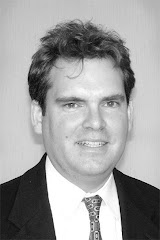While driving in the rural ghetto that is the stretch of U.S. 71 from south of Carroll County to the city limits of Maryville, Mo., one’s mind instinctively wanders toward thoughts about death.
It is not morbidity but rather a function of geography in this land that time left behind. Want to feel heel-clicking happy about living in Carroll? Drive here from northern Missouri, and you’ll be like Columbus spotting land when you see the blinking red lights of the wind-energy turbines now fencing Carroll’s northern reaches.
When you see dying town after dying town, neglected homes and feral animals roaming the roads, mortality is very much a fellow traveler. If whole towns can die, so will I.
There’s an obvious reason to contemplate death on a few miles of this route as eight people were killed in Villisca about a century ago in one of the more notorious crimes in U.S. history.
As I made my way Sunday past Villisca, home of the globally infamous and still unsolved 1912 ax murders, it occurred to me that upon departing this earth, and assuming my unabashedly conventional guess about the trappings of heaven proves to be true, I will have some questions for my maker.
I’d like to know who shot Kennedy — but probably after I learn the identity of the Villisca killer.
A few miles past Villisca it struck me that such curiosity is awfully trivial.
What we can’t know on this earth but may learn in the next life is where we went wrong with this one. What was down those roads not traveled? What was the most important decision in a life?
Terrifically small events are no doubt life-turning.
A few years ago in The New York Times, in a section of reader-submitted remembrances tucked in the middle pages, a man sent an anecdote that remains with me. This older gentleman recalled a moment, just a wrinkle in time, more than a half-century earlier, in which he was on a ferry. He glanced across at a passing boat and caught the eye of a young lady. Their gazes locked but they didn’t speak, and they never saw each other again.
Near the end of his life, after having a family, children, grandchildren, not to mention a loving marriage, the man’s mind often went back to the moment.
What if he had jumped off the boat, braving the East River, or yelled at the passing woman, asked her name, something?
God surely could run a film reel of some sort showing us how our lives would have turned out had we gone with different choices. Not marrying that guy or marrying the girl. Ships not just passing in the night.
What also would be interesting to learn is how close you came to death during your life before you actually died. A woman I interviewed after 9/11 told me she had just missed making it to work in one of the towers because she stayed faithful to her resolution to return movies to rental stores on time. She’d forgotten a movie that morning and lost 15 minutes so she go back and get it, avoid the late charge and, as it turns out, an early death. As she approached the towers, this woman saw people jumping from the inferno.
It will be nice to have some other answers — like what my conservative Republican grandfather has been thinking from above all these years as I used the editorial pages of the newspaper he founded to further a markedly different ideology than the one to which he subscribed.
But in the end it is comfort and peace in the next life for which we pray. And I found a measure of that in the words of Len Solomon, pastor of the McLean Bible Church in Virginia, who talks about his mentally challenged daughter Jill and what he thinks heaven holds for them in the January issue of Esquire magazine.
“At first I despised this fate and viewed it as a curse,” Solomon said of raising a handicapped daughter. “Now I know that it is a privilege.”
Then he says this—and it hit me like nothing I’ve heard from a preacher:
“I don’t have the slightest idea of what heaven looks like but I am convinced that when I get to heaven Jill is going to be whole, and she’s going to say, ‘That’s my dad.’ I will hear her voice.”
So often when we think of heaven, cliched clouds and bright lights and bearded men are foremost, visions planted in Sunday school minds. But I now like to think of heaven less that way, and more as Len Solomon does: a place where the people we love are found whole.
Tuesday, January 13, 2009
Subscribe to:
Post Comments (Atom)





No comments:
Post a Comment